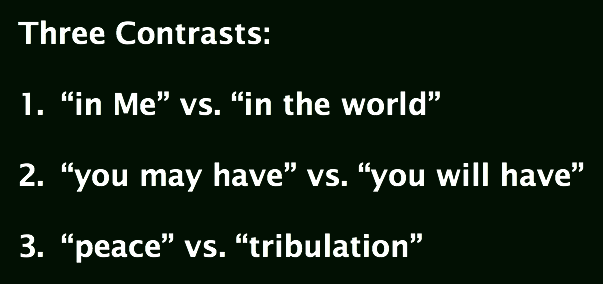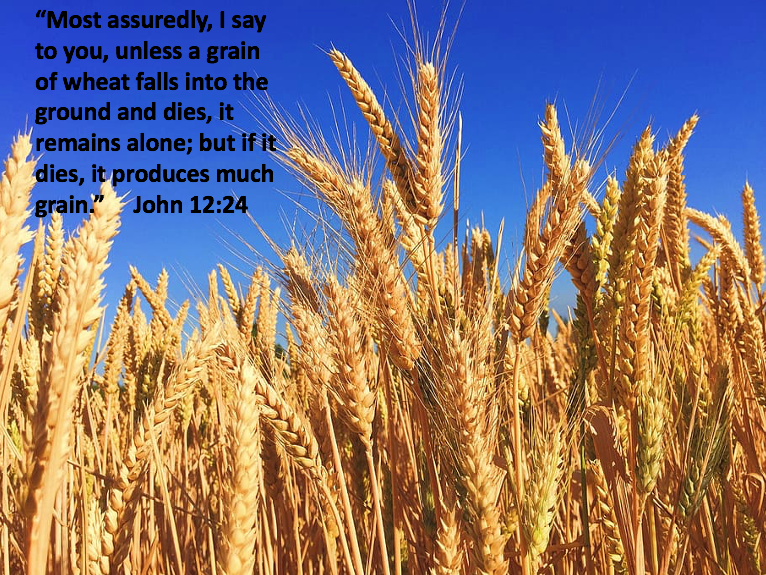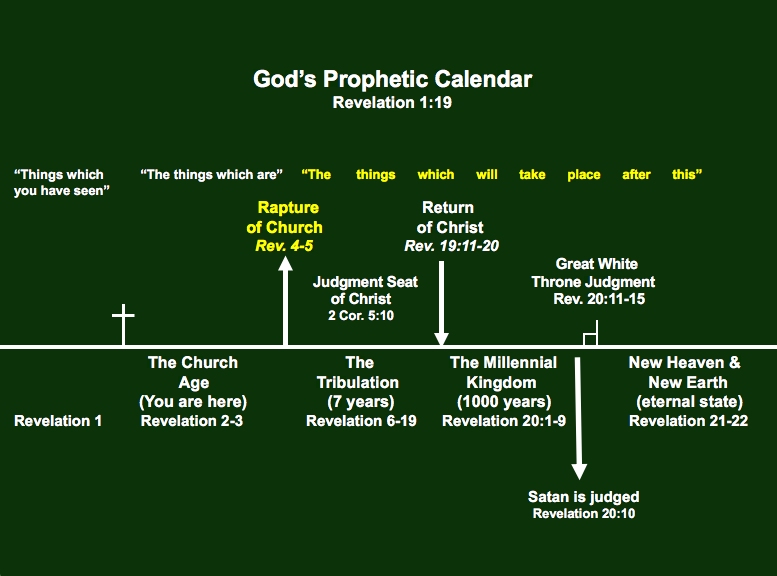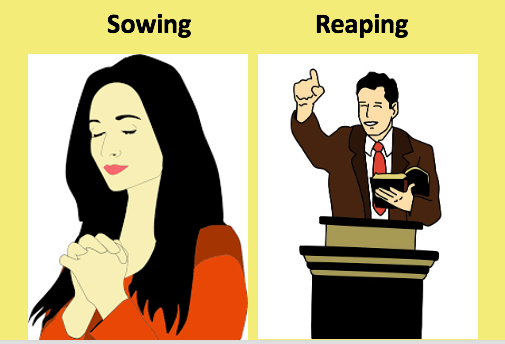“These things I have spoken to you, that in Me you may have peace. In the world you will have tribulation; but be of good cheer, I have overcome the world.” John 16:33
Growing up in the 1960s, sports were a major part of my life. I remember watching the introduction of the TV show called “ABC’s Wide World of Sports.” Every week, the host of the show, Jim McKay, would say, “Spanning the globe to bring you the constant variety of sport … the thrill of victory … and the agony of defeat … the human drama of athletic competition … This is ABC’s Wide World of Sports.” To represent “the agony of defeat,” a film clip of Vinko Bogataj was played of him crashing off a ski-jumping ramp. For decades viewers watched this terrible crash. Thankfully, Bogataj was not seriously injured. But his wipeout representing the “agony of defeat” was immortalized by this show.
Can you imagine having your failure replayed for decades before millions of viewers!?! None of us want our names to be connected with “the agony of defeat.” We would much rather be associated with “the thrill of victory.” With this in mind, we are going to look at the fifth and final way to face challenges with courage. So far we have learned from Jesus’ instructions to His disciples, that we can face challenges with courage when we…
– Resolve to go directly to the Father in prayer (John 16:25-26).
– Receive the Father’s special love for us (John 16:27).
– Recognize that Jesus is in control (John 16:28-30).
– Rest in the Father who will never abandon us (John 16:31-32)
The final way to face challenges with courage is to RELY ON CHRIST WHO HAS CONQUERED THE WORLD (John 16:33). Christ said to His eleven believing disciples, “These things I have spoken to you, that in Me you may have peace. In the world you will have tribulation; but be of good cheer, I have overcome the world.” (John 16:33). When Jesus says, “these things I have spoken to you,” He is probably referring to the many promises He has given to His disciples in the Upper Room discourse which included preparing a place for them in His Father’s house (John 14:1-3), answered prayer (John 14:13-14; 15:7), the sending of the Holy Spirit (John 14:16-17, 26; 16:5-15, 26), fruit-bearing (John 15:1-17), and unending joy (John 16:16-24). Christ ends His discourse on a note of peace and victory.
There are three contrasts in the first half of this verse which have incredible significance:

1. “in Me” vs. “in the world” – Jesus depicts the disciples as living in two spheres. The first is spiritual and eternal (“in Me”)and the second is physical and temporal (“in the world”).The phrase “in Me” points back to the intimacy Christ spoke of in the vine and branches imagery (John 15:1-8). Disciples of Jesus can “have peace” in Christ who never changes, not “in the world” which is ever-changing. We are not going to find peace in the world. Only Christ can give us the peace we yearn for. If our focus is on Christ, then peace can be our experience. If our focus is on the world, then we can expect “tribulation” (thlipsin). This word refers to “pressure or distress brought about by outward circumstances.” 1
2. “you may have” vs. “you will have” – in the spiritual realm the disciples “may have” peace. The verb translated “may have” (echēte) is in the subjunctive mood which means it is possible or desirable 2 they may have peace, but Christ did not guarantee their peace in this life. If they abide in Christ (“in Me”), then they can have peace. But it is not certain they will abide in Him. But Jesus does guarantee they “will have” tribulation in the world. The verb translated “will have” (echete) is in the indicative mood which conveys certainty 3 that the disciples will experience tribulation in the world. The disciples (and we) will not be able to escape the tribulation that is in the world. Perhaps the disciples still did not believe persecution was imminent (cf. John 15:18-16:4). They expected to rule with Jesus soon in His coming Kingdom (cf. Matthew 16:21-28; Luke 22:24-30). Their expectations kept them from receiving more truth from Christ that they found to be contrary to what they wanted – this is something all of us must guard against. 4
3. “peace” vs. “tribulation” – If the disciples (and we) abide in Christ and stay focused on Him, they can experience internal “peace” (eirēnēn) or a deep-seeded calmness that is given to obedient believers (cf. John 14:21, 23, 27a) even though they will definitely have “tribulation” in the world. This peace of Christ arises from a life of faith in God. It refers to a calmness “that would come to their hearts from trusting God and from knowing that He was in control of all events that touched their lives.” 5
The world cannot give this kind of peace to believers. The world gives Christians “tribulation” because the world opposes Christ and His followers (John 15:18-16:4). The word “tribulation” (thlipsin) “is used in a general sense to speak of the ‘pressing affliction’ that the disciples must endure as they identify with Christ in an unbelieving world (cf. 15:18-25). This is the pressure believers experience when they take a stand for Christ or speak out on a sensitive moral issue. Yet although believers face intense pressure from the world, they can enjoy internal peace in Christ.” 6
Some teach that if you are doing God’s will everything will go smoothly. This is contrary to what Jesus promises. Even if you are living for Christ “you will have tribulation,” because the world hates Jesus and those who follow Him (John 15:18-16:4). If the world does not hate a believer, it may be because that believer is being conformed to the world instead of being transformed by the Word.
After the disciples forsook the Lord at the time of His arrest (cf. Matthew 26:56; Mark 14:50), they may have felt ashamed and uneasy whenever they thought of Jesus. But Jesus predicted their desertion in the very saying where He also assured them of the peace He would give them (John 16:32-33). Christ loved them despite their shortcomings. In the future when they looked back on their desertion, they would reflect that Jesus predicted it. And even though He knew full well they would abandon Him, He had promised them peace. That is grace. Christ would give them peace even though they did not deserve it.
The world would definitely bring the disciples distress, but they could “be of good cheer.” The word translated “be of good cheer” (tharsaeite) means “to have courage.” 7 Why could the disciples face these upcoming challenges with courage? Christ explains, “I have overcome the world.” The word “overcome” (nenikēka) means “to overcome, conquer, be victorious” 8 and it is in the perfect tense. So Jesus speaks of His victory over the world as though it is an accomplished fact with continuing results to the present!
It was no accident that Jesus spoke these triumphant words, “I have overcome the world,” even as the Roman soldiers were buckling on the weapons for His arrest. That is confidence, isn’t it!?! But this is a confidence that would be lacking in the disciples that night. At first, when the soldiers came to arrest Jesus, Peter, the ring leader of the disciples, pulled out a sword in Jesus’ defense (Luke 22:50-51; John 18:10). But by the next day, all eleven disciples had lost faith. Those triumphant words from the previous night must have haunted the disciples as they watched from a distance as Jesus agonized on the cross. It appeared to them that the world had overcome Jesus. But on Sunday morning, their faith would be reignited and strengthened by the resurrection of their Lord!
To an unbeliever, the cross of Christ seems like total defeat for Him. But Jesus sees it as a complete victory over all that the world is and can do to Him. Christ goes to the cross, not in fear or in gloom, but as a Conqueror! Because Jesus won the victory over the hostile world and Satan through His death and resurrection (cf. John 12:31-32; 1 Corinthians 15:51-58; Colossians 2:13-15; Hebrews 2:14-15; 1 John 2:13-14; 4:4; 5:4-5), we can also win with Him as we face difficulties with His courage! Because Jesus has already won the battle, we can claim the victory as we face trials triumphantly. Have you heard this before? It is true, but it is not quite as simple as it sounds. One does not become an overcomer by simply saying with confidence, “I am an overcomer!”
The verb “to overcome” (nikáō) is used by John only here in the gospel of John, but he uses it six times in I John (2:13-14; 4:4; 5:4-5) and sixteen times in the book of Revelation (2:7, 11, 17, 26; 3:5, 12, 21; 5:5; 6:2; 11:7; 12:11; 13:7; 17:14; 21:7).
John’s use of the word “overcome” in I John is used of all Christians who are “overcomers” through their single act of faith in Christ at the moment of salvation which overcomes the world’s system’s hostility toward saving faith (I John 5:1, 4-5; cf. 2 Corinthians 4:3-4). However, the statements in I John about overcomers are not the same as Revelation’s statements about overcomers.
In Revelation there is the call to hear (Revelation 2:7a; cf. 2:10, 17, 29; 3:6, 13, 22). Only those Christians who hear the call and appropriate the promise will be able to live a victorious life for Christ. Jesus is addressing the whole “church” consisting of believers in the letter (Revelation 2:1; cf. 2:8, 12, 18; 3:1, 7, 14), but the call is to the one “who has an ear” and to the one “who overcomes.”
The Book of Revelation deals with persevering in works (Revelation 2:2, 9, 13, 19; 3:1, 8, 15) and not a single act of faith for salvation from Hell. For example, access to the “tree of life” (Revelation 2:8) is not based on a single act of faith in Christ (I John 5:1, 4-5), but upon obedience to Christ’s commands. “Blessed are those who do His commandments, that they may have the right to the tree of life.” (Revelation 22:14a). Revelation is talking about Christians being “overcomers” through obedience to Christ until the end of their lives, so they can gain eternal rewards such as eating from the tree of life or ruling with Christ in His coming Kingdom on earth (cf. Revelation 2:8, 26-27; 3:21; 22:14).
In John 16:33, we see that victory begins when, through the resurrection power of Jesus Christ, we find peace in living life for Him. Christ has already won the victory over the world and the ruler of this world. Knowing this can give us much courage as we face intimidating challenges.

In the Philippines when I would watch NBA basketball, I enjoyed the Dallas Maverick’s team. Since we were fourteen hours ahead of CST in Dallas, Texas, I was not available to watch their games in the mornings while living in the Philippines when they were televised live in the States. So I would watch the replay of their games in the evening. Before I did that, I liked to check the final score on ESPN, so I would know if the Mavericks won before sitting down to watch them. Knowing my team had already won the game, gave me confidence even though I may watch my team make several mistakes and fall behind in the score. I did not give up on them though because I already knew they would win the game.
The same is true in our Christian lives. We already know the outcome of this battle between Jesus and the world and the ruler of this world. Knowing Christ has already won the victory over the world and the devil can enable us to have courage when we face intimidating challenges. At times it may seem that the world and Satan are winning the battle when we fail, or other believers fail, but the truth is Christ has already won the war through His death and resurrection! Therefore, we can fight “from” the victory Jesus has already won, not “for” the victory as though it was completely dependent upon us.
Prayer: Lord Jesus, regardless of how the world beats us down, we have reason to live with courage because You are the Sovereign King over the world. You have defeated sin, death, and Satan through Your death and resurrection! Because of this, our eternity is secure in You if we have believed in You for Your gift of eternal life. We can now fight “from” the victory You have already won, instead of fighting “for” victory as though it all depended on us. Lord Jesus, You have the power to overcome our circumstances here on earth. Knowing this truth and staying connected to You in an intimate relationship will greatly change our perspective as we face challenging times on earth. Thank You for giving us peace and courage in the midst of life’s storms. You are an amazing Lord and God! In Your victorious name we pray, Lord Jesus. Amen.
ENDNOTES:
1. A Greek-English Lexicon of the New Testament and Other Early Christian Literature [BAGD], compiled by Walter Bauer, trans. and adapted by William F. Arndt and F. Wilbur Gingrich, 2nd ed., rev. and augmented by F. Wilbur Gingrich and Frederick W. Danker (Chicago: University of Chicago Press, 1979), pg. 362.
2. https://www.blueletterbible.org/help/greekverbs.cfm.
3. tps://www.blueletterbible.org/help/greekverbs.cfm.
4. Robert N. Wilkin, “The Gospel According to John,” The Grace New Testament Commentary, Vol. 1: Matthew – Acts (Denton, TX: Grace Evangelical Society, 2010), pg. 457.
5. J. Dwight Pentecost, The Words & Works of Jesus Christ, (Grand Rapids: Zondervan, 1981), pg. 440.
6 J. Carl Laney, Moody Gospel John Commentary (Chicago: Moody Press, 1992), pg. 297.
7. BAGD, pg. 352.
8. Ibid., pg. 539.








